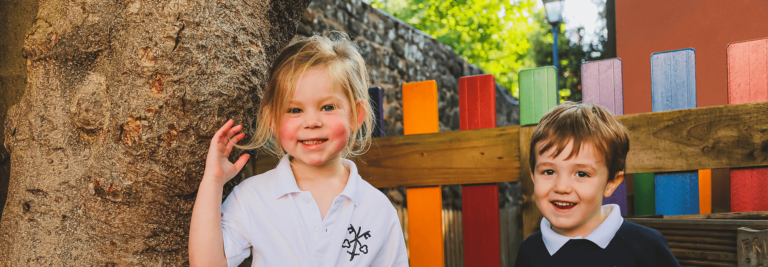Dear Friends, Parents and Guardians,
I was lucky enough to be a participant on a retreat in North Wales some years ago. The retreat involved silence for 8 days, with opportunities each day for about half an hour to share personal feelings and experiences of the retreat with a member of the retreat team. This was one of the most treasured experiences in my life. The silence, however, didn’t inhibit laughter. That’s a good job, because the priest who was conducting the retreat kept on telling jokes when it came to giving his daily address at the Eucharist. Here’s one of his stories:
John lived in a village where he was renowned for constantly being ‘the worse for wear’. One day he was walking through the village to go to the corner shop. A local lady came along side him. ‘John! You’ve got your ears bandaged up. That looks painful. How did that happen?’ ‘Well,’ said John, ‘I was doing my ironing when the ‘phone rang. Instead of lifting the phone, I lifted the iron to me ear……’ ‘But John. Why have you got both ears bandaged? ‘Because’, John smiled with a rather painful smile, ‘the person called back!’
Such stories have a bit of an edge to them as well as humour. They have a point to make, in the same way that parables Jesus used had a point to make. The story or parable may not immediately make the point clear, but it will reveal itself, if you give it time and reflection – indeed, ‘live in’ the story.
Practising living in the present moment and being aware
In previous letters, I’ve written about ‘awareness’. I hope that John’s story might be something of an ‘opening’, a ‘dawning’ for what I want to share with you this week.
In the story, John demonstrates rather painfully a lack of awareness of what he is experiencing in the present moment, perhaps not helped by his addiction. The phrase: ‘the present moment’ is in bold type. I invite you to be in the present moment – now. Yes now! Stop reading this letter and remain where you are. If you have background talk or music, turn it off for a few moments. Simply be here – now.
Noticing the many thoughts that come to mind
When you’ve returned to this letter, have a quick and non-judgemental reflection on what that moment was like for you. I’m going to ask you to do the same again, but I’ve got some guidance that might help. Every time a feeling, thought or image comes floating or indeed rushing in to your mind, don’t try to push it away, just notice it. For example, “I’m noticing that I’ve one or two important jobs to do, which make me feel a little uncomfortable or maybe even agitated.” Just notice that feeling and thought and you’ll find that it will have less power over you. “I’m training to be still and be here now, but I’m anxious about the constant news of the brutality in Ukraine.” Of course, there’ll be countless other thoughts and images that charge in and out of your mind. Just notice them and name them.
What is the particular significance, then, that I’m giving to ‘the present moment’? Eckhart Toll wrote a helpful book called: ‘The Power of Now’, which I recommend to you. He recognises in his book that most of us are not living in ‘the now’. I’m inclined to live in the future or in the past, concerned about my desire for the future; pleased or anxious about the past etc… That produces the endless conversations inside of me: inner debates, angers, sadnesses, happinesses, desires etc. These can take energy away from the only moment I have, which is ‘now’. This is where reality is and where I am living. Therefore, ‘the now’ is of the utmost importance.
Jesus in the present moment
Whatever you do or do not think about Jesus, most of his conversations and actions were ‘in the present moment’. Yes, he refers to the strange and mysterious image of a future kingdom, but even that is thoroughly rooted in this very moment; this moment of loving, compassion, including for yourself!
So I urge you to try practicing being in the now by putting aside a little time in stillness: simple and yet challenging, which is, perhaps, a creative way of using this Lent. People who practice this I can recognise easily, because when they’re with me there in the now and listening deeply. Christ-like behaviour, you might say.
With best wishes,
Bishop Martin
School Chaplain














